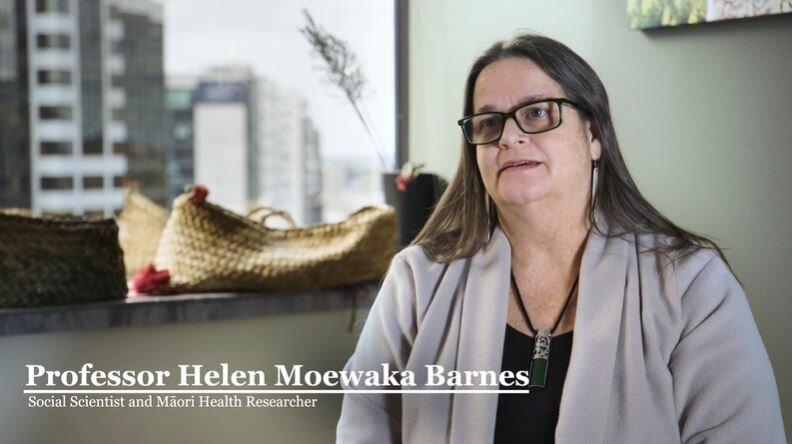19 Apr 2022
The Journal of Studies on Alcohol and Drugs has just published a FastTake by Sally Casswell and Thomas F. Babor on 'The gathering storm: Global alcohol problems and what needs to be done'.
Read more here.

The Journal of Studies on Alcohol and Drugs has just published a FastTake by Sally Casswell and Thomas F. Babor on 'The gathering storm: Global alcohol problems and what needs to be done'.
Read more here.

Professor Sally Casswell of the College of Health has recently increased her involvement with the World Health Organization (WHO).
Based at the SHORE & Whāriki Research Centre, Professor Casswell directs a WHO Collaborating Centre and has been reappointed several times as a member of the WHO Expert Panel on Alcohol and Drugs.
Now, Professor Casswell has been invited to join the newly established World Health Organization Strategic and Technical Advisory Group on the Prevention and Control of Noncommunicable Diseases (NCDs). NCDs accounted for 74 per cent of deaths globally in 2019 and have been increasing.
She says while the COVID-19 pandemic has diverted attention, NCDs remain a major source of premature mortality and include the ‘predisposing conditions’ of severe effects of COVID infection.
“I don’t look forward to the late-night Zooms but hope I can contribute in part by increasing attention to the need for good alcohol policy. It is recognised as a risk factor for NCDs but has received limited attention,” Professor Casswell says.
Read more here.

A return to Mexico to get married resulted in a 13-month long stint back home for Auckland-based PhD student Denisse Sanchez Lozano.
While she did manage to tie the knot to husband Gerardo, with New Zealand borders closed, the pair found themselves stuck in Mexico for longer than expected after the wedding. Mrs. Sanchez Lozano says she was thankful that she was able to continue working on her PhD while there, though there were challenges such as not having an office and dealing with the Mexican heat.
Read more here.

A Massey University study will investigate the barriers for disabled young people to participate in sport and active recreation.
Dr Penelope Carroll has been awarded a $1.1 million Project Grant from the Health Research Council of New Zealand (HRC) to lead the study.
Disabled youth are known to have lower physical activity levels and are less likely to be involved in sport than non-disabled peers. However research shows being physically active, and remaining so, are vital for physical and mental health and wellbeing across the life span.
Read more here.

Helen Moewaka Barnes is one of the twenty-seven new Ngā Ahurei a Te Apārangi Fellows and Ngā Ahurei Honore a Te Apārangi Honorary Fellows who have been elected to the Academy of the Royal Society Te Apārangi for their distinction in research and advancement of science, technology or the humanities. They are all exceptional leaders in their communities and their areas of research and scholarship.
Three other Massey staff members have also been elected. Details of the announcement can be found here.

Professor Helen Moewaka Barnes, Te Kapotai, Ngāpuhi-nui-tonu, from the SHORE & Whāriki Research Centre, received the 2020 Tū Rangatira mō te Ora Award by the Public Health Association of New Zealand. The award recognises outstanding achievement and leadership in Māori public health.
Read more here.

A public health researcher is calling for an urgent overhaul in the way alcohol is sold online.
New research shows that online alcohol delivery services used during the Covid-19 lockdown in March contributed to heavier drinking and buying drinks without ID was easy.
Dr Taisia Huckle is a senior research officer at Massey University.
Listen to the interview here.

New The Conversation piece by Dr Marta Rychert and A/Prof Chris Wilkins applies public health law theory to expand the current debate on cannabis law reform referendum. Researchers discuss state powers to protect public health and the individual’s right to privacy.
Read more here.

Countries with more liberal cannabis laws don't have the problems we do with synthetic cannabinoids, Associate Professor Chris Wilkins says.
Read more here.

New research from the University of Otago shows that the number of people hospitalised in New Zealand because of assaults over the weekend has reduced significantly following 2013 restrictions on late-night alcohol sales, which saw all bars and clubs close at 4am and no takeaway alcohol sales after 11pm. Professor Emerita Jennie Connor from the University of Otago is the lead author of the study.

Leonie Hayden (L), Associate Professor Chris Wilkins, Selah Hart.
The episode covers not only the particulars of what we’re being asked to vote on this October, but the potential implications of either outcome, as well as what our guests see as the most critical downstream factors for consideration should the referendum pass. For Massey University’s SHORE & Whariki Research Centre leader Dr Chris Wilkins, the polarisation of the issue drives home the need to make available clear and impartial information about the bill and referendum.
Read more here.

There are calls for a crackdown to make alcohol harder to buy from off licences after a study released on Tuesday shows New Zealanders are drinking harmful amounts in their homes.
The study is based on a 2011 survey of 2000 Kiwis. The research shows that ahead of last week's alert level changes, spending on alcohol increased by 195 percent and Auckland saw a massive 400 percent increase.
The study's author Taisia Huckle believes that as a result of lockdown harmful drinking at home would be even worse now.
"In a time of lockdown we would expect to see that most, if not all, of the harmful drinking would be in homes," she says.
See more here.

Massey University associate professor Dr Chris Wilkins told TVNZ1's Breakfast this morning, while it's a strong bill, there's a range of gaps in the upcoming referendum including the minimum price for the drug and potency.
Click here to watch the video.

Massey University’s SHORE (Social and Health Outcomes Research and Evaluation) & Whariki Research Centre has received funding from the World Health Organization (WHO) to carry out a scoping review on cross-border marketing of alcohol.
Professor Sally Casswell says the initiative is part of the WHO’s decision earlier this year to develop a global action plan on alcohol.
Read more here.

The HRC has introduced a new scoring criterion to help advance Māori health.
Watch the videos here to see Helen Moewaka-Barnes and other prominent researchers discuss the HRC's Māori Health Advancement initiative.

Dr Marta Rychert and Associate Professor Chris Wilkins discuss the complexities of translating cannabis reform law into a “tightly controlled and regulated market” on the ground in a recent Conversation article.
In less than three months, New Zealanders will vote in the world’s first national referendum on a comprehensive proposal to legalise the recreational use of cannabis.
Our research on earlier law reform, aiming to regulate the manufacture of “low risk” psychoactive products, shows New Zealand has a history of ambitious ideas that ultimately suffer from poor execution.
See more here.

Associate Professor Chris Wilkins and Khylee Quince, AUT law professor, debate legalising cannabis as an opportunity to control the out of control drug [Television]. 1News, Breakfast, 03 June, 2020.
Watch video here.

New Zealand has won international praise for its strict lockdown conditions and public health response to COVID-19, but there’s one glaring blindspot – alcohol was sold as an essential item, along with food, during New Zealand’s level 4 lockdown, even though almost half of all alcohol in New Zealand is drunk in heavy and binge drinking sessions. Sally Casswell discusses this issue in a recent Conversation article.
See more here.


As schools and businesses reopen and attention shifts to the longer-term repercussions of the COVID-19 pandemic, it is critical that Māori be involved in decision making more equitably than has so far happened.
The failure to include Māori in strategy discussions throughout the pandemic has already been roundly criticised, most recently over tangihanga (funeral) restrictions and the Public Health Response bill, which sets up a new legal framework for responding to COVID-19.
Māori public health specialists have repeatedly challenged a one-size-fits-all approach to pandemic recovery. There is also growing unease about who has the authority to make decisions in the best interests of Māori collectives. The sidelining of Māori as Te Tiriti (Treaty of Waitangi) partners cannot continue through our recovery and rebuild.
See more here. From The Conversation (https://theconversation.com/au)

West Auckland liquor stores have now stopped selling spirits in stores as the demand was causing people to travel far and wide for their favourite tipple.
Was demand always that high or was it exaggerated by the lockdown situation?
And what about drugs? Is there a similar demand and impact on drug usage and the illegal drug network?
Joining The AM Show to discuss this was Associate Professor in Health at Massey University, Chris Wilkins.
Watch the video.